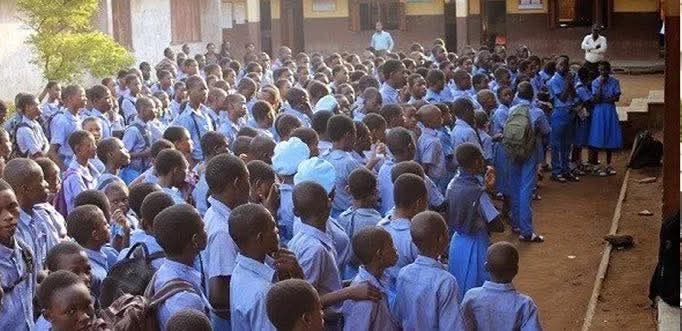FG to feed 50 million pupils in 2026
The Federal Government has said it is working to expand the National Home-Grown School Feeding Programme to 50 million primary school pupils in 2026.
Aderemi Adebowale, National Programme Manager, National Social Investment Programme Agency disclosed this in an interview with the News Agency of Nigeria in Abuja.
“We are working to include early years – primary 1 to 3, primary 4 to 6 – in the school feeding programme, and also out-of-school children, which we are handling step by step to integrate.
“So, by the year 2026, we are looking at feeding close to 50 million pupils in primary school in Nigeria.
“Ideally, school feeding should be between N500 to N1,000 per child.
“Even at N500 per child, you should be able to still give the children a nutritious and delicious meal on a daily basis,” she said.
Adebowale added that the agency controlled the price through the formation of an alignment of small-holder farmers, aggregators, supply chain and developing partners.
“With this alignment, we’ll be able to control price from the rock bottom. We are not going to be doing market prices.
“So, we have to agree on prices from our suppliers, agri-vendors and farmers to arrive at a reasonable cost per plate.
Once we do that, we will follow up on the payment and service delivery,” she said.
NAN recalls that on May 27, 2025, the Federal Government inaugurated the Alternate Education and Renewed Hope National Home-Grown School Feeding Project, aiming to provide meals for 20 million out-of-school and underserved children by 2026.
The initiative was inaugurated in Abuja by the former Minister of Humanitarian Affairs and Poverty Reduction, Prof. Nentawe Yilwatda.
Yilwatda is the current National Chairman of the ruling All Progressives Party.
The programme was rolled out through the Renewed Hope National Home-Grown School Feeding Programme in partnership with the National Commission for Almajiri and Out-of-School Children Education and the National Identity Management Commission.
Yilwatda had highlighted the programme as one of the key components of the National Social Investment Programme Agency, introduced to mark President Bola Tinubu’s second year in office.



